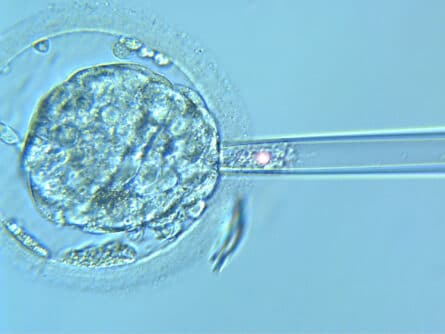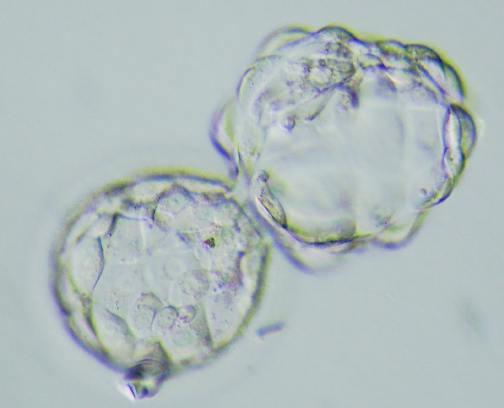What is PGT?
It is a diagnostic method that is performed on the embryo before it is transferred to the mother’s uterus to make sure it is not affected by any chromosome abnormalities or genetic mutations.
When there is a risk of passing on numerical chromosome abnormalities, structural abnormalities or serious hereditary conditions to offspring, PGT can inform us about each embryo’s status, thus allowing us to transfer only those embryos which do not present any of the abnormalities that were screened for.


Indications
- Illnesses that affect a single gene (dominant, recessive or X linked), whose mutation is known and can be analysed, X linked disorders whose gene is unknown or which are affected by some level of heterogeneity and structural chromosome abnormalities.
- Advanced maternal age, as this factor increases the risk of chromosome abnormalities such as Down syndrome, for example.
- Implantation failure with IVF cycles, in which the percentage of abnormal embryos can be as high as 70%.
- Severe male factor infertility, which represents 9% of cases.
- Other abnormalities such as the HLA haplotype (histocompatibility), and chromosome abnormalities in spermatozoids.
What is the PGT process like?
Creation of embryos
By IVF-ICSI
Embryo biopsy
We extract one or two cells from the embryo
Genetic analysis
To study the illness
Embryo transfer
Using embryos that are not affected by the illness.
First fertility visit is free
Request your first appointment cost-free at the clinic closest to you

We guarantee your pregnancy until birth or we will give you the money back
Discover Ginemed Maternity, the pregnancy programme that guarantees the birth of your child with your own and donated eggs
Frequently asked questions about PGT
One of the applications of the Pre-Implantation Genetic Test is, precisely, to detect chromosome abnormalities, meaning that with this test it is possible to diagnose conditions such as Down syndrome.
The recommendation depends on each patient’s case. Each case would need to be studied and assessed by a specialist.
Embryo quality varies depending on morphology, but the quality assigned to an embryo does not provide any information regarding its genetic material. That’s why a good quality embryo could present chromosome abnormalities, while a poor quality embryo could be free from chromosome abnormalities.
